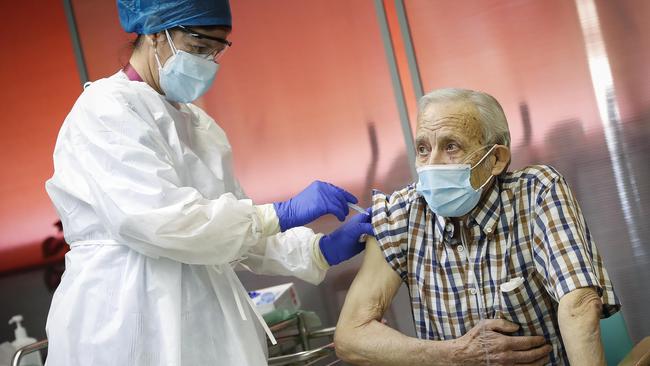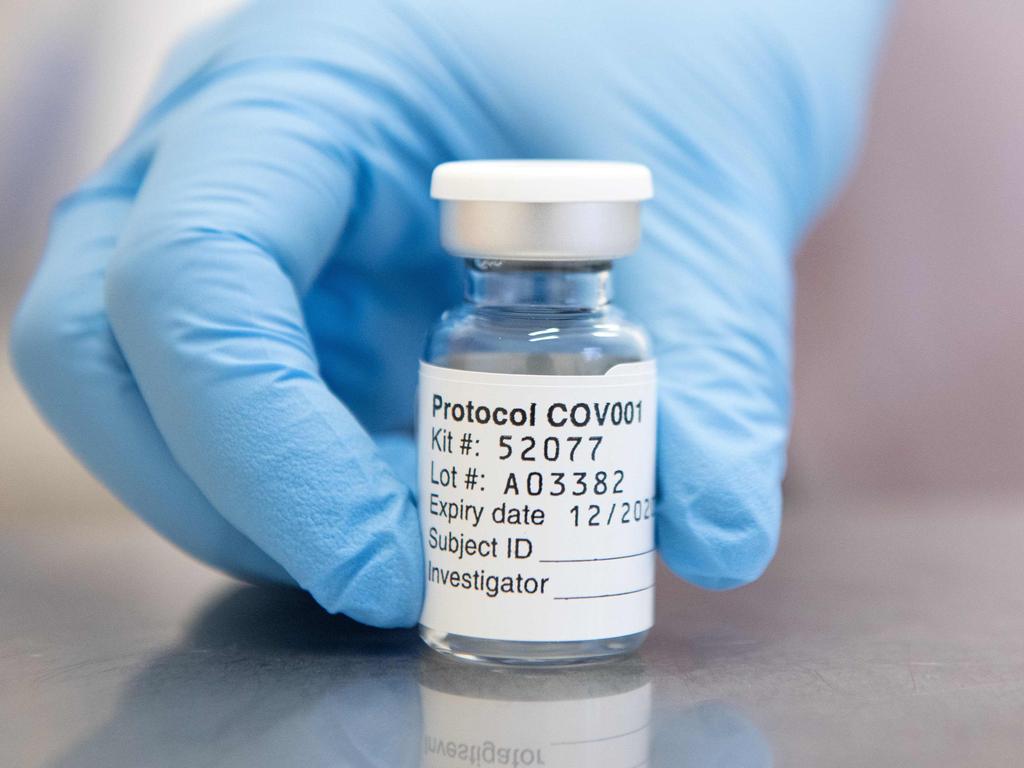Europe begins to roll out vaccine as Aussies face wait until March
Germany and Hungary began vaccinations a day ahead of the planned rollout across 27 European Union states

European countries have begun inoculations of the Pfizer BioNtech coronavirus vaccine, adding to pressure on Australian authorities to fast track regulatory approval for a local rollout before the current March timeline.
Over the weekend European countries including Germany and Hungary began the vaccination program a day ahead of the planned co-ordinated rollout across 27 European Union states. This is more than two weeks after the United Kingdom was the first in the world to begin using the vaccine under emergency approval.
The UK was also preparing to approve the cheaper Oxford AstraZeneca vaccine for roll out as early as next Monday and authorities estimate as many as two million mainly elderly, vulnerable and healthcare frontline workers will receive this vaccine within a fortnight.
The country has been beset by a mutant variant of the coronavirus which has seen infections soaring in recent weeks and health officials are keen for both vaccines to be used as soon as possible.
AstraZeneca has conducted further trials of its vaccine after confusing stage three trials showed a “primer’’ half-strength first dose, followed by a second full dose several weeks later was 90pc effective, compared to only 62pc effectiveness for a full two-shot dose.
AstraZeneca chief executive Pascal Soriot said on the weekend the researchers had found the “winning formula” of the vaccine and details would be published soon. Australia has secured four million doses of the Oxford AstraZeneca vaccine, which will arrive from overseas laboratories next month. This will be boosted by local manufacture of the vaccine in the CSL laboratory in Victoria.
The EU rollout of the first tranche of 12.5m doses of a 300m order of the Pfizer BioNtech vaccine comes after regulators brought forward a final meeting following widespread public criticism about tardiness in making a decision.
Edith Kwoizalla, a 101-year-old woman from Halberstadt, was the first to receive the vaccine in Germany on Saturday. “For us, every day counts,” Immo Kramer, a regional vaccination manager, told German broadcaster MDR.
“This vaccine is the essential key to defeating the pandemic. It is the key that will allow us to take back our lives,” Health Minister Jens Spahn said.
In Italy, a nurse was inoculated at the Spallanzani infectious diseases hospital where the country’s first coronavirus cases — a couple from Wuhan — were treated in late January.
In the meantime Canada and the United States have also approved the Pfizer BionNTech vaccine for its residents.
However Australia will not get access to 10m doses of the Pfizer BioNtech vaccine for around six weeks, following a comprehensive review by the Therapeutic Goods Administration, guided by the medical experts of the Australian Technical Advisory Group on Immunisation.
The delay means the first Australians will not be vaccinated until March, months after large parts of the western world will have already vaccinated its most vulnerable people.
Last week the Health Minister Greg Hunt said: “We’re expecting the first of the Australian decisions in six weeks, or approximately, from our regulator.
“Then we’re on track to begin the first of the vaccinations in March.”







To join the conversation, please log in. Don't have an account? Register
Join the conversation, you are commenting as Logout